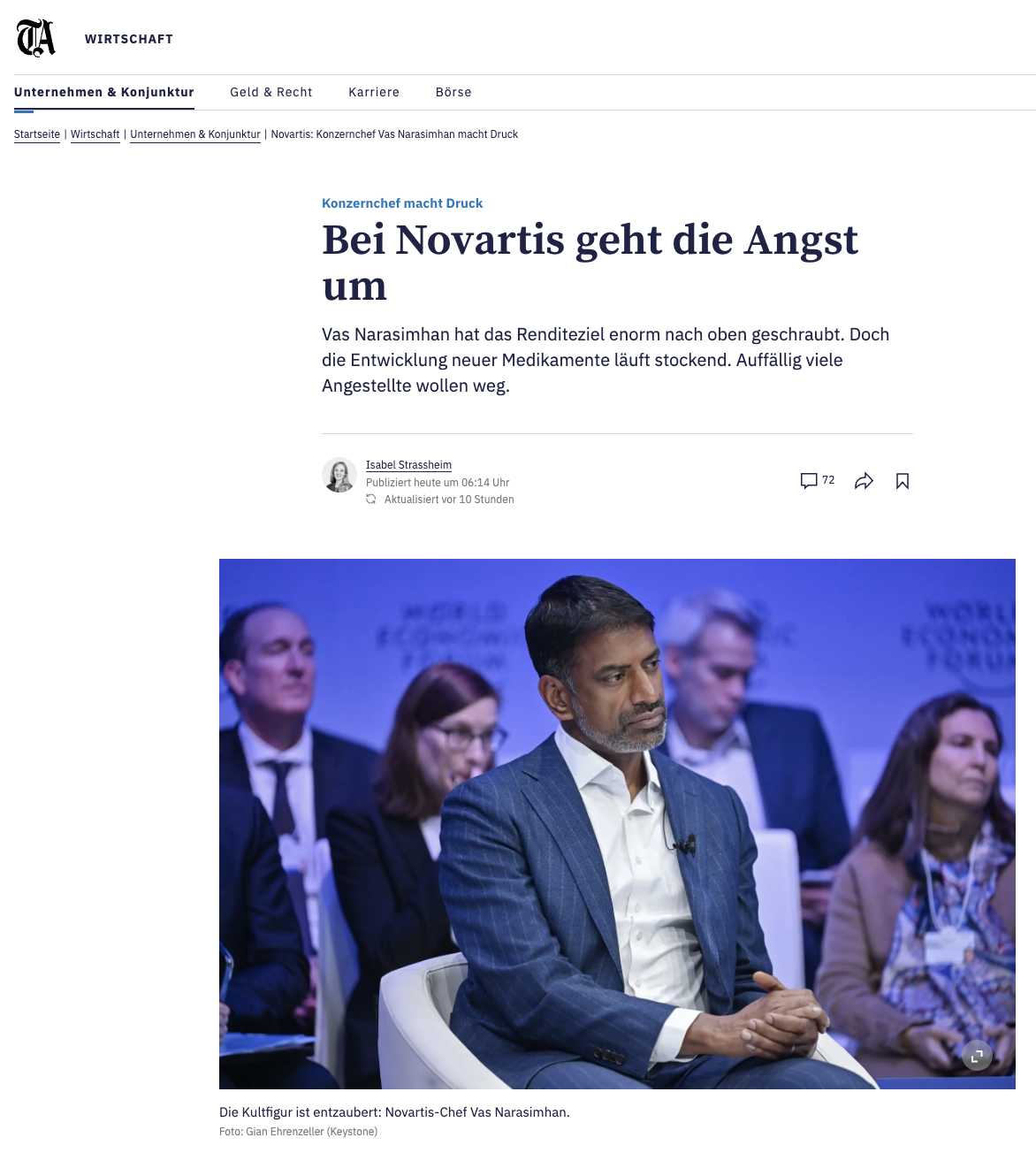TOP BOARD AND CEO PRIORITIES FOR THE SECOND HALF OF 2023:
IS YOUR COMPANY PREPARED FOR WHAT IS COMING?
TOP CHANCES & CHALLENGES IN THE SECOND HALF OF 2023
We talked with the NZZ,
Peter Fischer, NZZ Chief Economist, and Michael Ferber, Editor Economy, about their views on the priorities for the Board and the CEO until the end of 2023. Read their views here:
We see the priorities for boards of directors and the C-level of Swiss companies in the second half of 2023 in the following areas:
Inflationary pressure in Switzerland is expected to continue at a moderate level and the shortage of skilled workers in the Swiss economy is expected to ease only slowly. This poses the challenge for companies to structure next fall's wage round in such a way that they do not lose top performers and at the same time keep costs under control.
Another major challenge will be dealing with a potential energy shortage in the coming winter. Depending on the weather and the further course of the Ukraine war, there may well be bottlenecks in electricity and gas supplies again. Consequently, company managements will have to consider how to deal with possible austerity measures or a quota system in a shortage situation.
Geopolitical uncertainty remains high, especially in business with China. Boards of directors and management must consider how they would deal with a further intensified decoupling between China and the USA.
and with the FuW (Finanz und Wirtschaft)
Dr. Rainer Weihofen, editor, FuW (Finanz und Wirtschaft)
What can happen if a company's top personnel are not selected carefully enough is shown quite clearly by the example of Credit Suisse.
The challenges are currently getting tougher, and not just for banks. As a result, the terrain on which members of the Group Executive Board and the Board of Directors operate is becoming rougher.
People in management positions have a role model function that goes far beyond the professional. This role model function is particularly important when employees have to cope with major changes. If the much-vaunted specialists are unable to identify with their managers, they are likely to leave.
In the recruitment process, therefore, great attention should be paid to the question of whether a candidate fits in with the company culture. This does not mean that an internal candidate is automatically the best choice. A breath of fresh air from outside can be inspiring.
Based on the survey data, the top 4 Chances & constraints to growth in the second half of 2023 are:
1. Inflation:
Inflation has been fueled by disruptions to global supply chains during the pandemic and rising prices across the board. According to a survey by the Boston Consulting Group, inflation is the No. 1 risk facing companies in North America, Europe and Asia. The same survey shows that 82% of CEOs expect inflation and high interest rates to impact their company's performance in 2023.
At the same time, 63% of CEOs are confident or very confident in their ability to manage inflation, according to a Deloitte survey.
2. Economic uncertainty:
Last year's optimism, based on hopes for economic improvement as the global pandemic eased, was shattered by various shocks in 2022. These included the largest land war in Europe since World War II, knock-on effects such as soaring energy and commodity prices, and rapid wage and price inflation. These events have contributed to the prevailing economic uncertainty facing CEOs in the current business environment. According to the Deloitte survey, the most significant immediate challenge facing CEOs is undoubtedly the state of the global economy. Nearly three-quarters of CEOs expect global economic growth to decline over the next 12 months, leading to market uncertainty due to factors such as inflation, interest rates and geopolitical tensions.
.png?width=1540&height=1912&name=W-INSIGHTS%202023%20August%20-%20Summary%20EN%20-%203.1%20(1).png)



